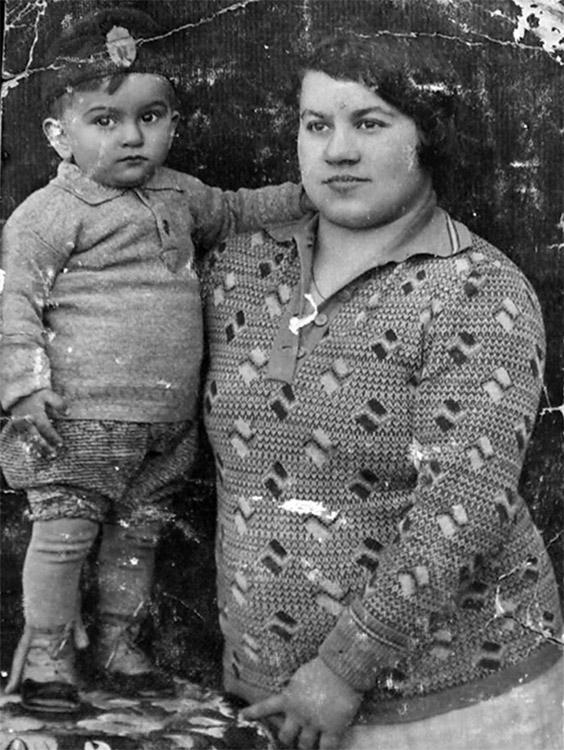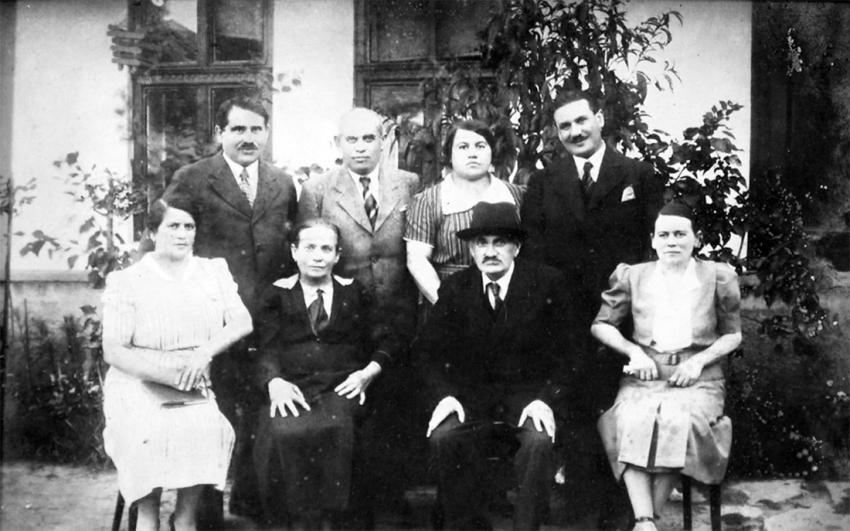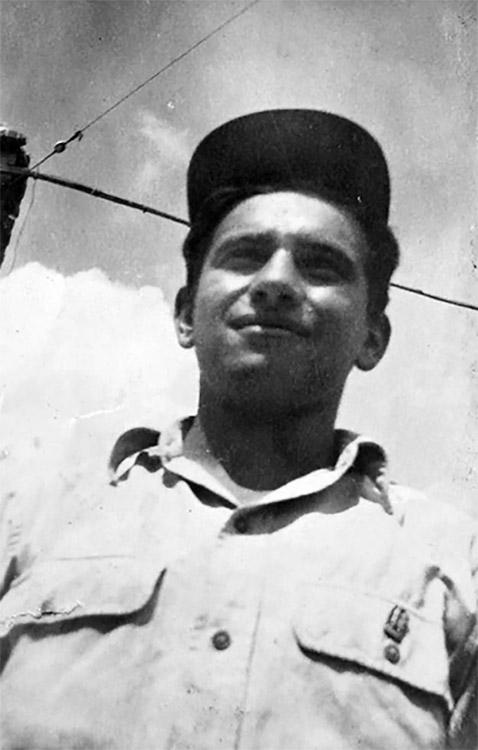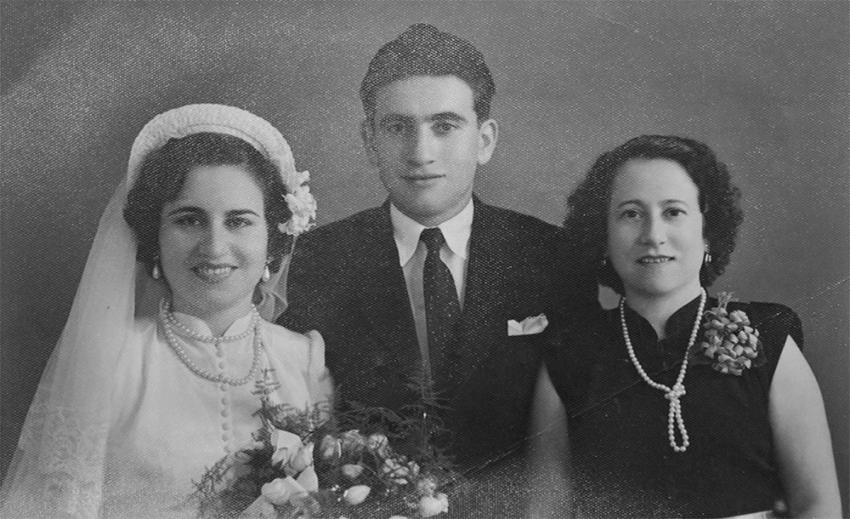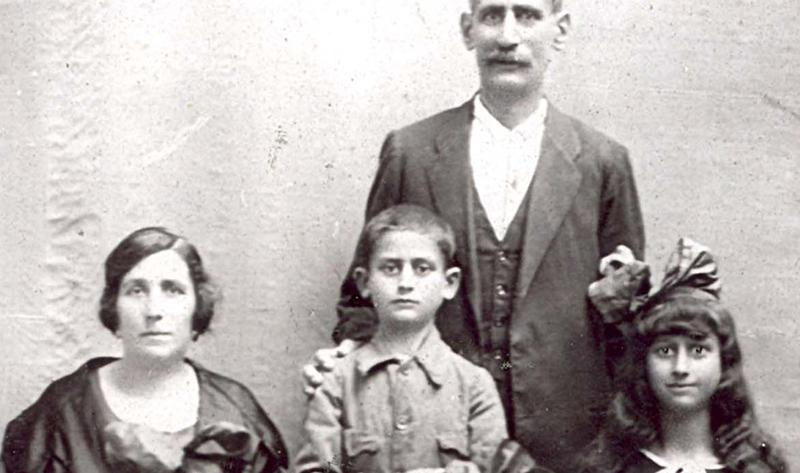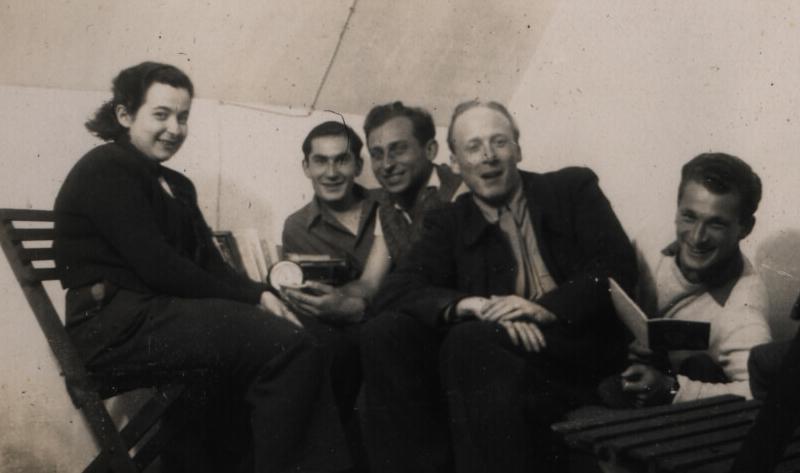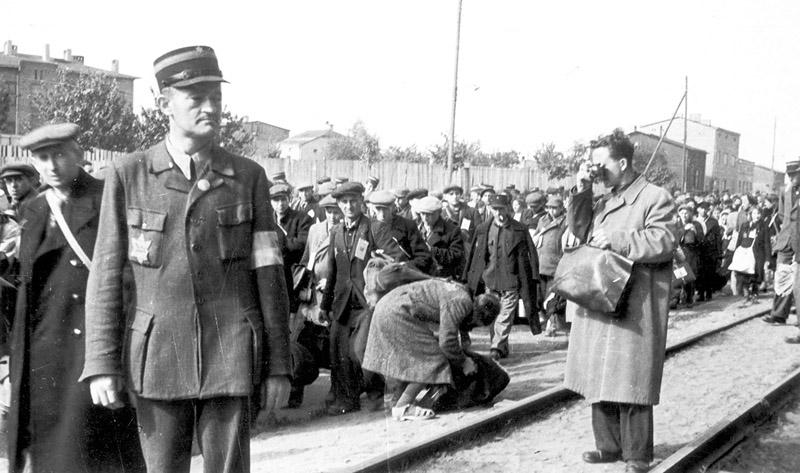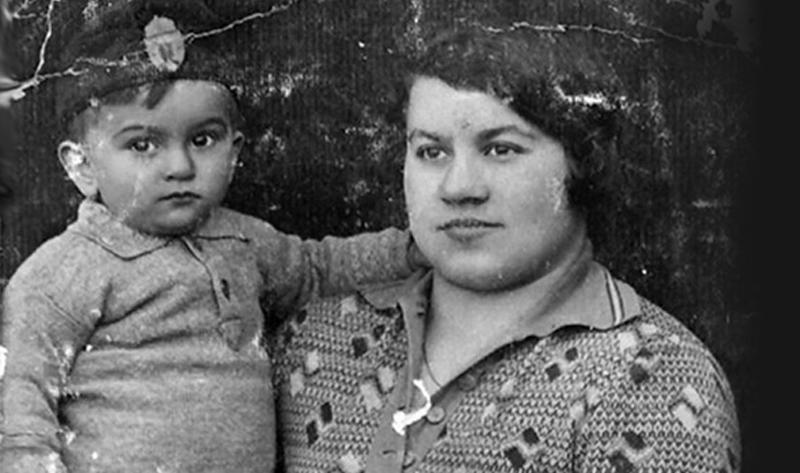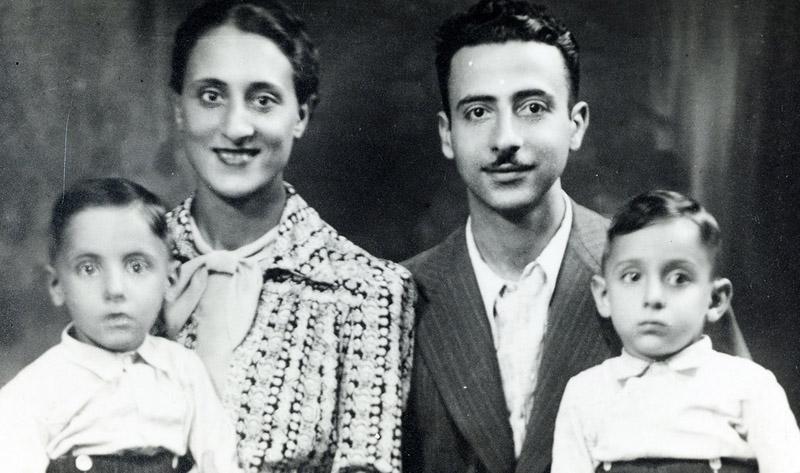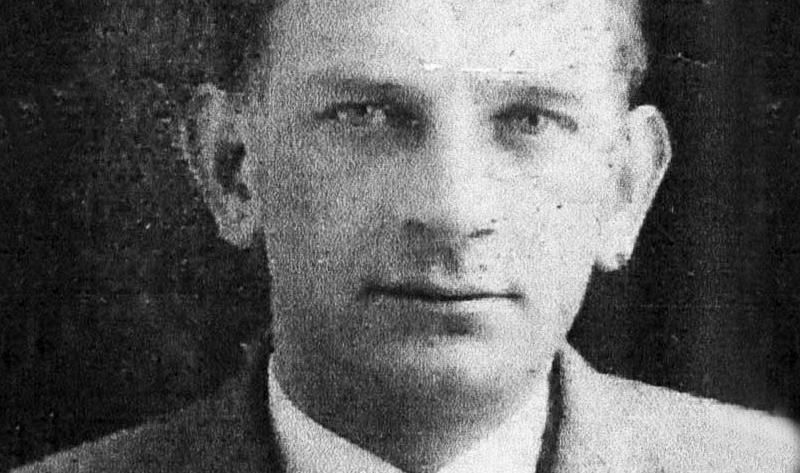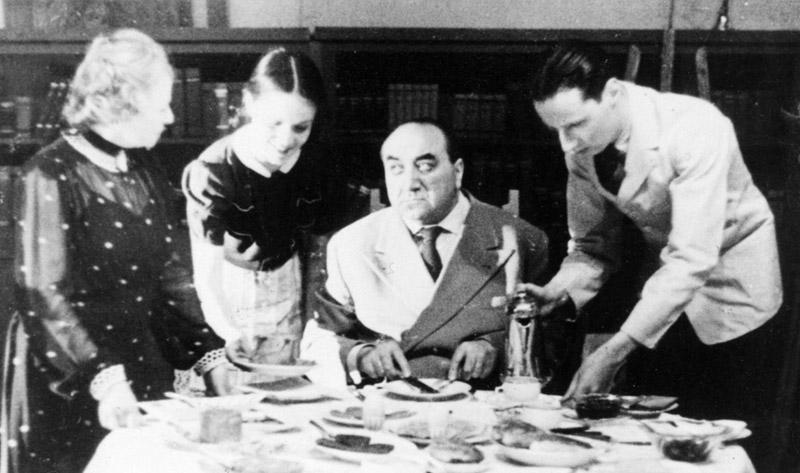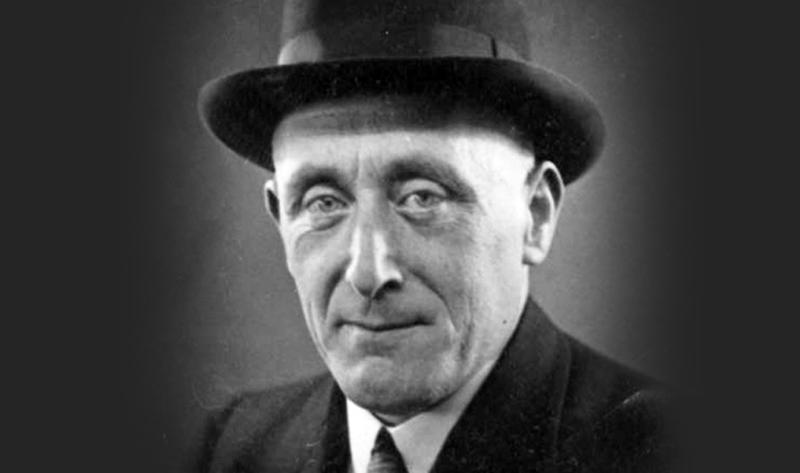The Schwartz Family from Tatárszentgyörgy, Hungary
9 July 1944: Deportation of Jews from Monor, Hungary to Auschwitz
The Schwartz Family from Tatárszentgyörgy, Hungary
9 July 1944: Deportation of Jews from Monor, Hungary to Auschwitz
Approximately 9,500 Jews were deported from their collection point in a brick factory in Monor, Hungary to Auschwitz-Birkenau in three transports between 7-9 July 1944. Among the Jews on the last deportation from Monor were 14-year-old Zoli Schwartz, his parents Lajos and Ilona, his two-year-old sister Iren and other relatives. This was one of the last transports of Jews from outlying cities and villages in Hungary to Auschwitz-Birkenau. Between the months of May and July 1944, some 430,000 Hungarian Jews were deported to Auschwitz-Birkenau via Košice. Only the Jews of Budapest and Jews in the Hungarian Army labor battalions remained in Hungary.
Zoltán-Zoli Schwartz was born in 1929 in the village of Tatárszentgyörgy to Lajos and Ilona née Rechnitzer. Lajos' father's family also lived in the village. His grandfather, Józi-József Schwartz, had a houseware store, and owned a piece of land in the village which he farmed together with his son Ferenc, who also lived with his family in the village. Lajos made a living from the family store. They had a license to sell tobacco and alcohol, which they received from the authorities in return for their contribution to Hungary: Józi had lost one of his sons on the battlefield in World War I. Lajos was a disabled World War I veteran, who had been awarded the Iron Cross. Another Jewish family, the Korns, also lived in the village. The Schwartz family would spend Jewish holidays with Ilona's family in the village of Martonvásár. Zoli studied at the local Hungarian grade school for four years. In order to continue his studies, he moved to the house of his aunt Irena, his mother's sister in Martonvásár, as his village did not have a high school. He would see his parents twice a year, during school vacations.
In 1938, legislation was introduced in Hungary that limited the Jews' trading activities, amongst other things. In 1942, the Schwartz family's tobacco and alcohol licenses were revoked, which had repercussions on the family's livelihood. Jewish men of recruitment age were taken to the Hungarian Army labor battalions, among them Ferenc's two sons. In 1942, Lajos and Ilona had a baby girl, Iren. "The situation at home was hard," relates Zoli. "There were no big celebrations… the baby was born into a difficult reality." Zoli completed his middle-school studies. The plans to continue his studies in Budapest were shelved, and in 1943, he returned home to the village.
The Germans invaded Hungary on 19 March 1944. German soldiers arrived in Tatárszentgyörgy on motorcycles, and asked where the Jews lived. They entered the Schwartz home. One of the soldiers ordered 14-year-old Zoli to remove his boots and polish them. The Jews' movements in the village were limited to two hours per day. They were forced to wear the Yellow Star, and were forbidden to employ Hungarian housekeepers. Lajos and Ilona had Hungarian Christian acquaintances who agreed to take Zoli in and hide him. "I didn't want to part with them," relates Zoli, "and I didn't trust the Christian family. I worried that even if they would be good to me, their neighbors would give me away, so I stayed with my parents. We had no idea what was coming."
Several weeks later, the Schwartz family received the order to leave. They hired a wagon, took some belongings and a little food, and moved into the ghetto established in Lajosmizse, some 18 km away. When they were leaving their home, a representative of the Hungarian authorities arrived, and the house was locked up, the lock sealed with wax. "Later on, I found out that after the wagon passed the corner of the road," relates Zoli, "Neighbors broke the lock and looted the entire contents of the house and the store." Ilona Korn and her son Geza were evicted at the same time. Ilona's husband Erno Korn was in a Hungarian Army labor battalion at the time.
In late April, the Jews of Lajosmizse were confined in a ghetto set up in a number of large Jewish homes, together with the Jews in the surrounding towns, including the Schwartz family. The overcrowding was severe. The bed that the Schwartzs brought with them from the village stayed in the courtyard under a tree, there being no room for it in the apartment where they were crammed together with six other families. At the end of June, the Schwartz family was sent by train to the brick factory in the town of Monor. They were warned that anyone who tried to escape would be executed. "They informed us that we were going to the railway station, and from there, we would be traveling to a new town. We took blankets and a few clothes… whatever we could carry," relates Zoli. We thought we would be going to work in agricultural farms in Poland." They were crowded into a quarry, and had to sleep in the open air, exposed to the elements, with no water and just a little food that was distributed from time to time.
A few days later, Zoli and his family were loaded onto a train yet again. He relates:
There was no train station at the place. The train simply stopped next to the factory. They loaded us onto cars and locked the doors from the outside... At first, the train journeys were an experience for me. I had never been on long trips out of the two villages where I had lived. School outings were on foot in the area… I never went on long journeys. I was excited about the journey… It was crowded inside the car… there were two buckets, one for human waste and one with water. We traveled as far as Mishkolz, where they left us inside the cars for several hours... People were thirsty, and asked for water. The guards wouldn't let locals approach the train to give the passengers water… Until we got to Kosice. There, we all got out of the cars… A Hungarian gendarme gave us an impassioned speech to the effect that we were about to leave Hungary, and that we had to behave accordingly, and represent Hungary honorably... He added that if anyone still possessed valuables, this was the time to hand them over… We were loaded into the cars once again, and the train continued to travel. We arrived at the camp [Auschwitz-Birkenau] at night. They told us to disembark quickly and to leave our belongings. "You will come back to get your things later," they said. "Stand in two lines." They separated the men and the women. I saw workers take our suitcases and load them onto wagons. I said to myself: "We won't be seeing our things again." I understood this from the way they took them and mixed them all up… One of the men unloading the suitcases approached my mother and told her to give Iren to an old woman standing next to her… Mother stayed with Iren. I did not bid my mother farewell… I stood at the end of the line with Father and my uncle… We went on foot, and reached a building, where they shaved us, we washed, received our shoes and they gave us striped prisoner uniforms, a spoon and bowl.
After a short time in Birkenau, Zoli was transferred together with his father and uncle to Mühldorf, a sub-camp of Dachau in Bavaria, where they built underground installations for the production of weapons. Lajos and Ferenc were assigned to a work detail that distributed the food, and at the end of the day, they were permitted to take extra food for themselves, which is how they survived. In January 1945, Lajos and Ferenc were transferred to a different work detail under harder conditions. Due to his young age, Zoli was assigned lighter tasks. Lajos and Ferenc's condition deteriorated quickly, and in March 1945, they both succumbed to exhaustion and starvation in the space of a few days. In April 1945, the camp inmates, including Zoli, were evacuated on a train in the direction of Austria, to distance them from the approaching US Army. They were liberated on May 1st.
After many trials and tribulations, Zoli returned to Hungary and reached the home of his aunt Irena in Martonvásár. She had converted to Christianity before the war, and was married to a Christian. "That was the first time I burst out crying," recalls Zoli. "At long last, I saw somebody I knew." It was only after the war that Zoli realized that his mother and sister had been murdered in the gas chambers of Auschwitz-Birkenau. He was left alone. Most of his extended family had also been murdered.
In 1947, Zoli boarded the Ma'apilim ship "Theodore Herzl", bound for Eretz Israel (Mandatory Palestine). The ship was intercepted by the British, and the passengers were sent to detainment camps in Cyprus. Zoli immigrated to Eretz Israel in December 1947. He changed his name to Zvi, enlisted in the Palmach, and fought in the War of Independence. He married Leah, and they had three children.
In 1999, Zoli-Zvi Schwartz submitted Pages of Testimony to Yad Vashem in memory of his parents Ilona and Lajos, his sister Iren, his uncle Ferenc and his cousin Tibor.
